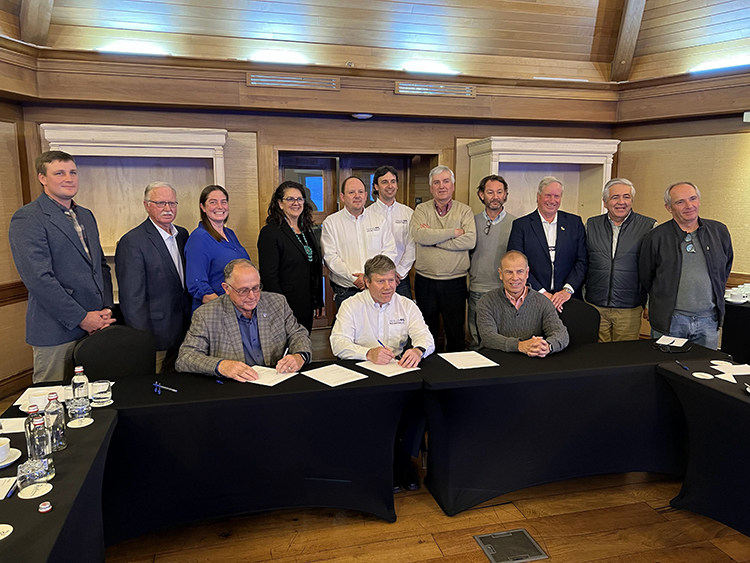
Although we might desire to sometimes, it is impossible to operate within a bubble in today’s interconnected world. Global societies, markets, and governments are readily linked together with everything from social media to trans-oceanic flights to Zoom. We depend on, use our relationship with, and relate to one another every day.
The dairy business is no different.
The milk checks arriving in U.S. farm mailboxes fluctuate based on world supply and demand. On the supply side, global milk production is influenced by the policies governments oceans away may apply to their farmers. And just as we work to build interest in dairy products at home, we must recognize that many more shoppers and consumers live outside of our borders and are also looking for affordable nutrition that is produced responsibly.
That’s why it’s critical to have world-wide partners who share U.S. dairy’s priorities of protecting the future of the dairy industry and growing total demand for dairy products. As they say, a rising tide lifts all boats.
A unified voice
Last month, this kind of supportive relationship was formalized when representatives from the U.S. Dairy Export Council (USDEC) and National Milk Producers Federation (NMPF) met with leaders of the Federación Nacional de Productores de Leche de Chile (FEDELECHE). While a whopper of an acronym, FEDELECHE might be thought of as the NMPF-like organization in the South American coastal country.
As the dairy farmers and USDEC leaders who participated in the week-long trade mission to the emerging market learned, Chile’s dairy industry has many similarities to ours. Consolidation and the trend toward fewer, larger farms is slowly occurring, and there is concern about the fact that more farms are located farther away from population centers. However, dairy demand is also robust in the country that has seen greater domestic production as well as skyrocketing growth in cheese imports in the last few years.
Chilean dairy farmers also share the same commitment to their animals and land as U.S. farmers. Most of the country’s dairies are located in the Los Lagos and Los Ríos regions — “The Lakes” and “The Rivers.” At the same time that drought and soil erosion are challenging farmers, consumers want to be assured that their food is produced in an environmentally friendly way. A voluntary sustainability support program has already attracted nearly 200 farms. Further, the country boasts thorough guidelines on animal care best practices.
“We’ve all been in the same boat, being labelled as contaminants. The whole dairy world is fighting this,” recognized FEDELECHE first vice president Guillermo Petermann in a meeting with the American contingent, describing the common challenges dairy farmers on both continents face. “However, we believe our narrative is true because we trust the animals and think milk is the best product.”
FEDELECHE, NMPF, and USDEC signed a memorandum of understanding to signify the two countries’ commitment to not only share information and collaborate, but to bring a unified voice to the world stage in terms of dairy’s place in society and in nutrition.
In an international community that has a strong presence from the European Union countries, where environmental restrictions on dairies are becoming prohibitive, bringing a strong pro-dairy voice to the table is essential, as Marilyn Hershey, dairy farmer and Dairy Management Inc. board chair, emphasized with the Chileans. By joining with other countries that share the same standards and outlook as the U.S., our perspective and the importance of dairy gains even more credibility.
The U.S.’s relationship with Chilean dairy farmers and their leaders will provide both countries that chance to strengthen the future of their dairy industries by advocating for the important work they are already doing and their proactive mindset. “We look forward to developing this,” Petermann added. “Our scopes are very similar.”








